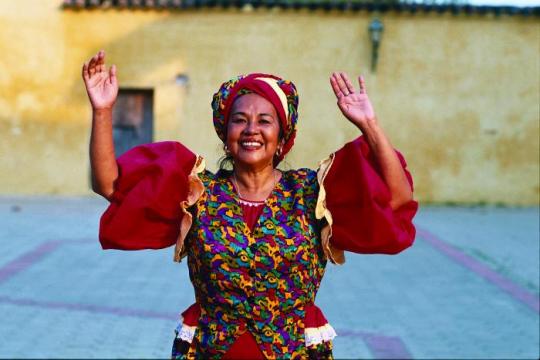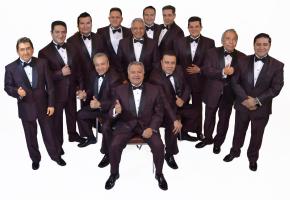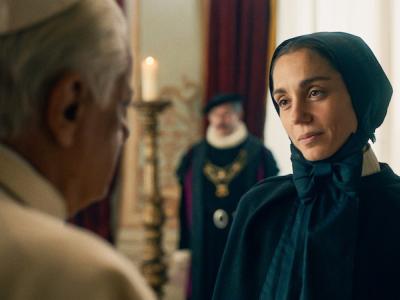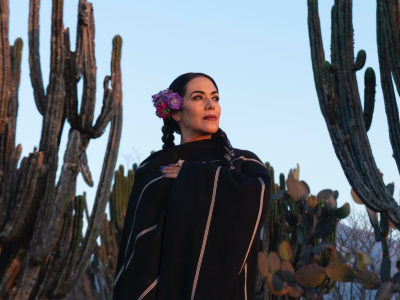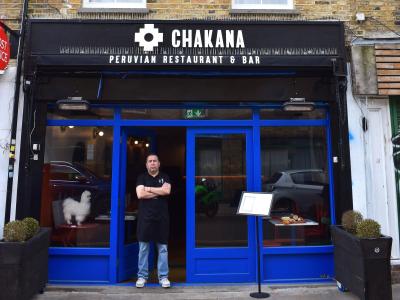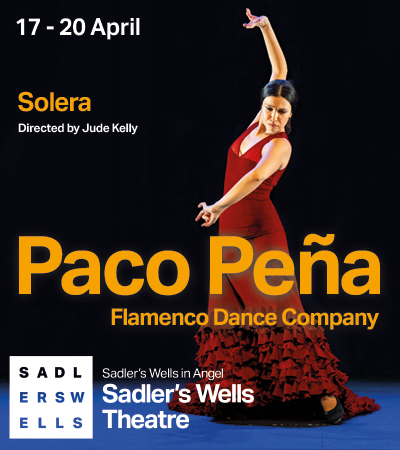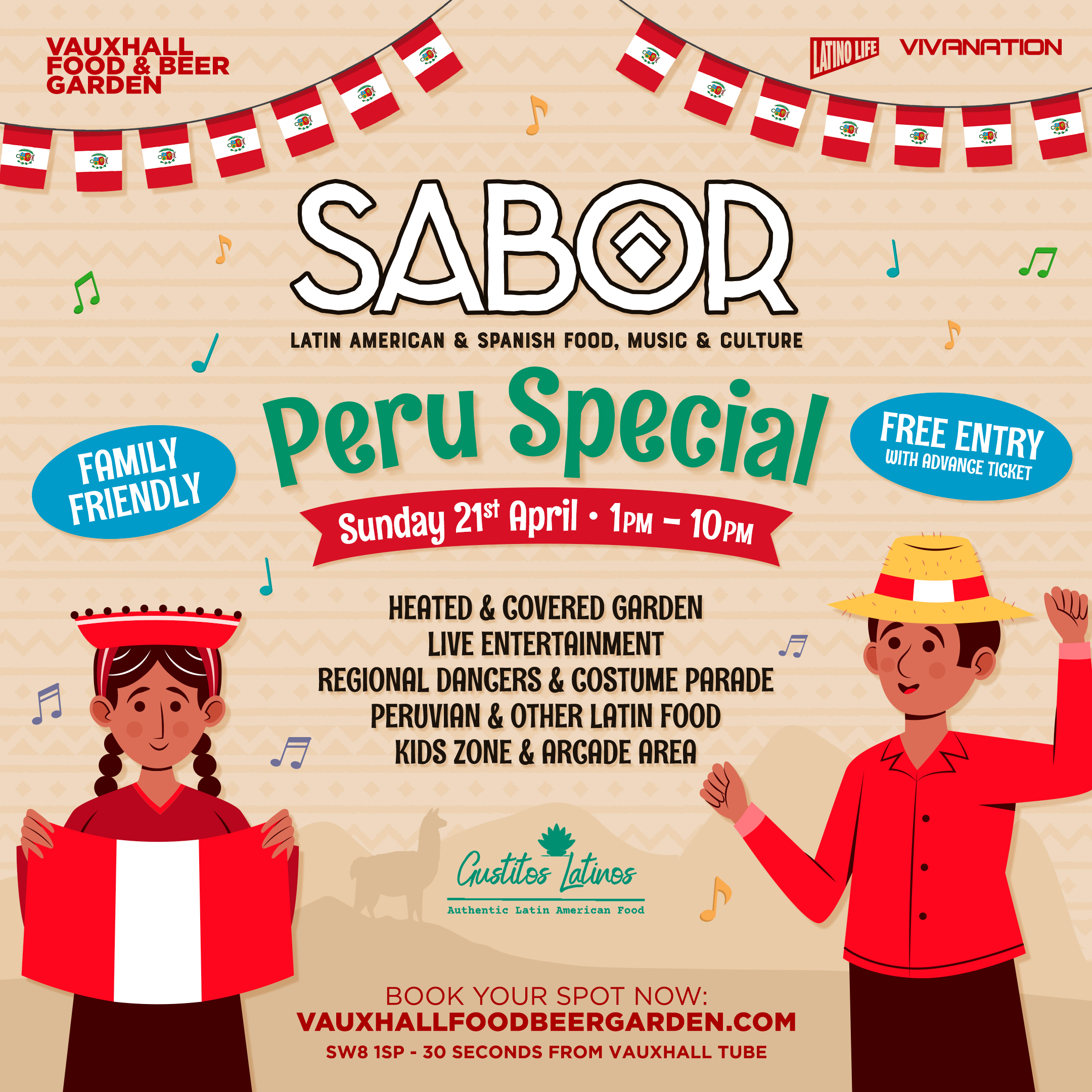Latino Life: The perception of Colombia seems to have changed, how has music played its part in this?
Totó la Momposina: Well it has to do with a lot of things. There is still a lot to be done, for example all those horrible films about drugs and mafiosos are just lies about what we are like. But the peace agreement has been a major achievement and we have all played our role in changing perceptions, even artists. For example when Gabo (Gabriel Garcia Marquez) got his Nobel literature prize, he took me and others to perform at the ceremony, to help show that Colombia was much more than what the international media was portraying.
LL: And you also played your part developing ‘World Music’...
TM: Nobody can take that away from me! (laughs)…being serious, Latin music has been influencing Europe since the times of Yma Sumac in the 1950s or the Chilean bands fleeing Pinochet in the 1970s. But I remember the first time I went to the Soviet Union and stayed there for six months with my group. We did over 300 shows all over there. When you experience foreign cultures your heart opens up and so does your mind. I felt almost that I had been in those paces before, a sense of dejá-vu maybe, or who knows maybe I had been there before! And then we went to France, the place where Colombians used to go, you know we Colombians move around the world (laughs). We got invited to a festival, then we played everywhere, the Metro, the streets, the markets, venues. We recorded our first album in Paris ‘Colombie’ Then came the UK chapter where we spent a lot of time and I ended up recording an album and also my daughter married an Englishman and I now have six British grand-children! Nobody can take that away from me either! (more laughs)
LL: How do you manage to stay true to your roots in such a globalised world?
TM: I sing what I have to sing. I think each country should keep its own sound, with their different instruments, melodies and ethnic heritage. Colombians are Caribbean alongside Cuba, Puerto Rico, Venezuela, Dominican Republic and we all do carnival music, but we should all keep our musical identities pure; I don’t have to do carnival music like the Dominicans and the Dominicans don’t have to do it like the Brazilians…
LL: So you are a bit of an ethnomusicologist
TM: (laughs) Not quite, but I do partner up with ethnomusicologists, anthropologists, philosophers in order to learn more and about my culture…
LL: And you are working on those projects at the moment?
TM: The project is this...you have 60 different indigenous groups, in 40 municipalities, and in each municipality, each group has certain characteristics and so on. For example, ethnicity in the Magdalena river, is influenced by ethnicity from the Bolivar region and the Atlantic region etc, so its about keeping these cultures and musics alive. It’s is a labour of love. We don’t play this music to try to get awards and recognitions, we play this music because it is in our hearts and it belongs to us, so the work we do must continue no matter what.
LL: Tell me more about that English episode in your life
TM: I went to England after Paris. After playing at the Festival of Music of the Americas, Peter Gabriel invited us to his first music festival in Bristol. He sent John Hollis to find us in Paris, who then became my producer and my son-in-law, and from there the English connection started. At the festival everyone was in tents, eating sandwiches (laughs)! That experience ended with the recording of La Candela Viva. That was my favourite album, and we made a new edition a couple of years ago and renamed it Tambolero as a tribute my lifelong drummer and collaborator Batata, who passed away a few years ago. This is a very especial recording,
LL: It must have been an amazing experience doing it again.
TM: The thing with that album is that the first time round Richard (Blaire) was a young lad who was learning to do sound and John did not know our music at all. This was in 1992 but I was also involved in the production and I had my opinion, so it was good but it could have been better, so when we started working with the masters all these years later everyone has become better.
John was the one who said, lets revisit those recordings because the mixing was not the best. In any music, you have to follow the specific characteristics of the genre, and that is what we’ve done now, and that is why the new album sounds like it does!
Also, now that I have six grandchildren in the UK, so I had the chance to sing and dance to all the songs with my grandkids, who are all very artistic. My granddaughters ended up being my backing singers doing choruses. Some bass was added to some tracks too, which was recorded in Colombia with my new bassist Dickie Chappell.
LL: It does sound phenomenal…so this tour is the tour of that album?
TM: Yes, it is the tour for the reissue of Tambolero. This time we are bringing a couple of new elements. I know Europeans don’t like concerts to change much from the recording, but in Colombia we have something called fanfarrias, which incorporates guitar and brass, so we will bring two extra musicians for this show. I’m always so excited to be performing again in the UK, I have a great history there. It’s like coming home.


